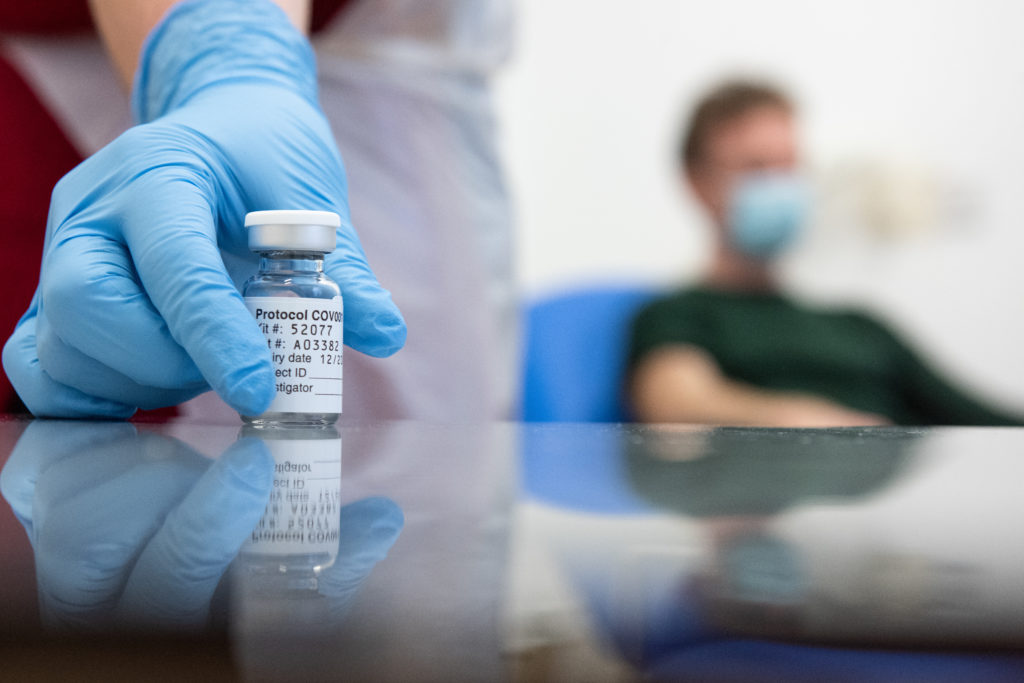An international study led by University of Oxford health economists and political scientists has found that there is much greater consistency in public attitudes across a number of countries about who should be prioritised for COVID-19 vaccination than there is in national policies.

The study, published on the medRxiv pre-print server, could have important implications for vaccine prioritisation policies and roll-out strategies. The research was supported by the NIHR Oxford Biomedical Research Centre (BRC) and the COVID-19 Oxford Vaccine Trial.
The study surveyed 15,536 members of the public in 13 diverse countries to understand preferences and opinions regarding the allocation of a COVID-19 vaccine.
Unsurprisingly, those surveyed agreed that age, vulnerability and risk of transmission should be important factors for prioritising vaccination. It was notable, however, that they would also prioritise according to what might be deemed more economic factors, including low income groups and a wide range of non-health related key occupations, such as teachers and non-key workers who are unable to work from home.
So far, only a minority of countries have given priority to vaccinating groups of key workers, such as teachers.
“Although there is considerable variation in COVID-19 vaccine allocation policies in the countries we surveyed, there does seem to be a great deal of consistency across geographically, economically and culturally diverse countries with regard to the public’s preferences for prioritisation,” said Dr Laurence Roope, a senior researcher at the University of Oxford’s Health Economics Research Centre (HERC), and one of the authors of the study.
Professor Philip Clarke, Director of HERC, added: “We hope the results of our study help to inform the ongoing debate over how COVID-19 vaccination programmes should be implemented. They identify opportunities for policymakers, who have often struggled during the pandemic to balance the need to protect public health and the economy, while taking account of public opinion. Encouragingly and somewhat remarkably, the results on who should be prioritised are consistent across the political divide.”
Among other notable findings was that respondents consistently preferred government-only allocation of vaccines. However, a significant proportion, especially in low and middle income countries, said they would be willing to purchase them on the private market to receive the vaccine faster.
“This has possible implications for both coverage and affordability,” Professor Ray Duch, Director of the University of Oxford’s Centre for Experimental Social Sciences and a co-author of the paper, explained. “If COVID-19 vaccines are to be allocated privately, given the constraints on vaccine supply, there is a clear risk that countries will find it harder to acquire the necessary doses to carry out their ‘official’ vaccination campaigns.”
The survey also showed that mandating COVID-19 vaccination has considerable support in many countries, but public opinion is more polarised in counties like the US, the UK and France, with the latter being overwhelmingly opposed.